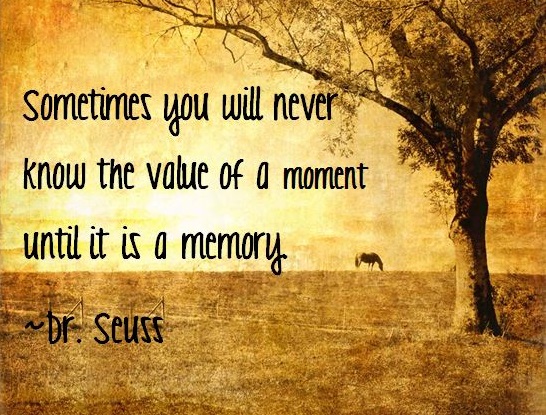By Blair McKissock, MSEd, RYT
As I write this column, I can’t help but think of the words transition, grief, change, loss, and sorrow. My heart breaks. When my fingers touch the keyboard, they don’t want to move, and after every period, they hesitate again. When I first started my transition from traditional therapeutic riding to equine-assisted learning, it was very hard to let go of what I had known, and find the openness that was required of me. The first thing I was asked to do was just to listen and observe the horses. What did I notice? What questions did I think they were asking me? What was coming up for me while watching them? How might that emotion or sensation affect the dynamic between you, the horse, and a client? It is one thing to work with horses as a job, but to really watch and listen to them is entirely different. Shortly after I started, I began to work with three mares that were related – a mom and her two daughters. After only a few short months of my working there, the mother passed away from complications from colic; a twisting in her intestines. It was very sad and difficult to see that happen. What was even more surprising was the grief that the two daughters went through. Having opened myself up to them as part of my own work, their grief was palpable, it hurt to watch them. Their behavior changed, they became difficult to handle, as their ground training went out the window. They could not be separated, and therefore weren’t used as often. When they were separated, the one left in the pasture would panic, and the one in the session would be distracted, never connecting with the client. This continued for almost nine months before they began to settle, and became willing to reconnect. The grieving process for horses is much as it is for humans; there is a varying range and complex combination of emotions happening as they process through the loss. I can’t help but think about my own complex emotional response to hearing about the death of our publisher and “teacher,” Walter Perschke. He taught me several lessons that confirm what the horses have taught me.
Be honest
It sounds simple, yet it is not always easy to be honest about how you feel, especially when others’ feelings are involved. He taught me that sometimes in order for things to change, you have to be honest not only with yourself, and also with others. Horses are always honest, and their responses authentic. When they are afraid they respond by fighting, running away, or freezing. When they are angry, you know. When they are sad and grieving, they don’t try to hide their complex emotions, they move through them. Navigating a strong emotional response isn’t easy, but Walter taught me that friends support each other, even when you are honest. In salute to the difficulty of being honest, there was acknowledgement and gratitude. Horses respond in the same way. When you are honest, they respond with acknowledgment by responding through connection and willingness.
Embrace what you cannot see
Sometimes there’s a flesh-eating dragon in the shadows. You can’t see it, but it’s there. If you have ever worked with horses, you understand. A horse’s vision is such that they don’t always see the same thing out of each eye. For example, when you ride a horse in one direction in a circle, they may not spook at anything they see, yet when you turn them around and go in the other direction, they may spook at something they have passed several times. It’s because they are seeing anew out of the other eye. There are many things, forces, and mysteries in this world that we cannot see. That doesn’t mean we should be afraid of them. We should take the time to investigate, listen, learn, and embrace the unknown. We will never have all the answers and figure it all out; we are not supposed to. However, we can accept that they exist.
Dream big
Yes, horses dream. Like dogs, a horse can be laid out on its side and have a dream while they sleep. There is no telling what they dream of, but it could be something amazing! Walter was an accomplished dream interpreter. I would call him sometimes when I had a completely outlandish dream, and we would laugh at the potential meaning. He was also an expert at the other kinds of dreams, the kind that keep us moving forward in life; that give us purpose. He had amazing dreams of a Spiritual University, community festivals and retreat centers where likeminded people, our herd, could come together and share their visions. He met fabulous and colorful people throughout his life, generating enough stories to fill hours of laughter and fun. I grieve the fact that his dreams will never be fully realized, and hope that someone will be able to pick up where he left off.
Equine therapist Linda Kohanov, in her book The Tao of Equus: A Woman’s Journey of Healing & Transformation through the Way of the Horse, discusses the emotional message surrounding grief. She describes grief as, “No choice in letting go. Grief often includes anger. Having something you value taken away, even by impersonal life circumstances, is experienced emotionally as a boundary violation.” She also examines the potential messages behind the emotions, and the questions those messages ask of us. The message behind grief may be, “a significant loss or death has occurred, usually due to circumstances beyond your control.” The question is “What must be mourned? What must be memorialized, appreciated, or celebrated?” She thinks about grief not just as an emotion that happens when you lose a person to death, but also as an emotion we feel when anything is taken away without our consent. Sometimes it is the loss of a friendship we grieve. It makes me think about the complex emotions I feel when I think about the loss of Walter. I mourn the loss of his presence in my life. I mourn the loss of the conversations that demonstrated his support of his entire “conscious community,” and his support for my work as well. I mourn the loss of unrealized dreams and potential. At the same time, I celebrate his colorful life, his stories, and his laughter. I celebrate his leaps of faith, and his unbounded belief in the goodness of the world. I will be eternally grateful for the amazing gift he gave me, of the opportunity to grow and explore the depths of the horse-human relationship with complete unconditional support. I celebrate the fact that I am a better person and horse person for having known him.
Blair McKissock, MSEd, RYT is a speaker and author on experiential and nature-based learning. You can learn more about coaching, OmHorse mounted yoga sessions, and the HorseWork Professional certificate training at stridestosuccess.org.
 Conscious Community Magazine Dedicated to Elevating Consciousness
Conscious Community Magazine Dedicated to Elevating Consciousness




